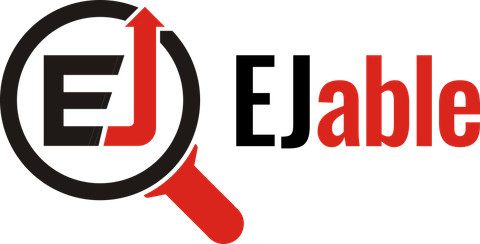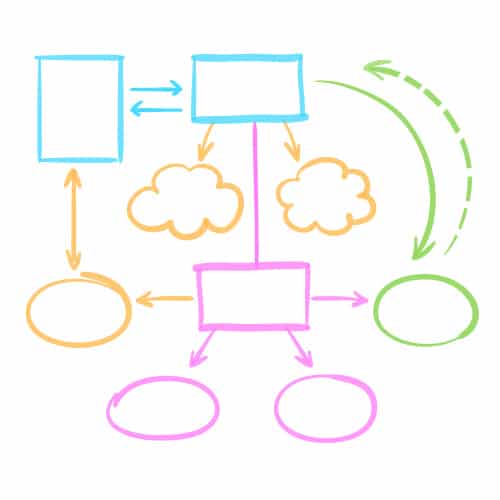The Ultimate Guide to Building Your Unique Career Plan

“We are all, each and every one, unique in the Universe. And that uniqueness is what makes us valuable.”- James A. Owen.
Guess what? Your career plan needs to be as unique as you are. It’s not simple to figure out what you want to do with your life. Actually, let me rephrase this: It’s not simple to figure out what different goals you want to accomplish in your life. “What you want to do with your life” – as common as the saying – implies that we all seek one true version of ourselves. But that is entirely false.
We are capable of many things and can reach various versions of ourselves. The key is to find what will make us achieve so much. Don’t worry: everyone on this planet has been through some deep questioning about career plans. That’s simply part of the game of being human.
This ultimate guide will help you determine and define your unique career plan. Then, either you follow it or see throughout time if you or exterior factors modify it. Life is full of surprises. But good things come to those who have a clear starting point, those who have defined goals and work like hell to achieve them – without any fear.
However, remember this: career planning is an evolving process, just like you. So, take it easy. Here’s some help to plan your career and define realistic goals and objectives that you can (and will) accomplish soon.
“Your career plan is not a sprint; it’s a marathon.” – Jason Santa Maria
STEP 1: Get to Know Yourself
We often believe we know ourselves well, but the truth is, there’s much more beneath the surface. Our conscious mind may guide our daily choices, yet the subconscious holds deeper insights into our true passions and potential. Uncovering these hidden aspects is crucial in career planning.
By understanding our conscious desires and subconscious inclinations, we can align our career objectives with our authentic selves, ensuring a successful and fulfilling path.
Following are the 6 crucial points to help you know yourself to meet your career objectives for a successful career journey.
1. Analyze your current lifestyle: are you happy?
It’s definitely a tricky one to respond to. If only it were that easy to know, right? And what is the definition of happiness anyway? But I’m afraid to say it’s your best starting point.
Here’s the deal:
Try your best to respond to this ‘Happiness check’ made just for you. Bear in mind: these are not yes or no questions. Make sure you answer the “why?” and be honest with yourself. Or else this “happiness examination” will be completely inefficient.
Questions You Should Ask Yourself
- Do you feel happy leaving your bed every morning? Why?
- Are you looking forward to your day? Why?
- Do you feel like you’re working towards something? Are you dedicated? Why?
- Do you spend time doing what you love?
- Do you appear to complain a lot? Do you overthink things? Why?
- Is your mindset more negative than positive? Why?
- Is your mental state treating you and your body right? Why?
- Do you tend to underestimate yourself? Are you fearful of things? Why?
- Do you feel self-confident? What are the reasons you do or you don’t?
Indeed, that’s a whole lot of questions to answer. But when answering these, you will have a clearer mind on where you’re standing at this second – and what you should do to change or evolve in the near future.
This “Happiness check” isn’t only necessary when thinking of a career plan – it’s a necessary examination everyone should take at some point in their lives. Everyone goes through it… It can be known as an “existential crisis” for some, like when adults turn 40 and experience a midlife crisis.
But it doesn’t have to be taken this far. Just think about your life. Are you happy with it? Are you happy with yourself? They say life is as good as your mindset – indeed, the two are intertwined.
“Happiness is when what you think, say, and do are in harmony.” –Mahatma Gandhi.
2. Think about your personality: what are your unique traits?
It goes without saying that while you think about your unique career plan, which should be as unique as you are, you examine your personality. Who you are as a person can bring additional helpful information for your career path.
That being said, better knowledge of each aspect of your personality doesn’t immediately confirm the official job you should apply for. It’s not that easy. However, some jobs will feel more “natural” to you than others.
It’s obvious to mention the universally known personality test, the Myers-Briggs personality index, here. According to Carl G. Jung’s theory of psychological types, people can be categorized by:
- Their attitudes: Extraverted (E), Introverted (I)
- Their perceptions: Sensing (S), Intuition (N)
- Their ways of judging: Thinking (T), Feeling (F)
- Their structure: Judging (J), Perceiving (P)
Now, see for yourself.
3. Examine your likes and dislikes: what do you enjoy doing?
Unmistakably, this must be the easiest one to think about. You can’t possibly go wrong with what you like and what you dislike. In fact, it is easier for some people to examine their dislikes over their likes.
At least, that will help you sort out what you hate entirely and will never do (even though sometimes you can be surprised) and, on the contrary, what you could definitely imagine yourself doing.
Regarding your likes, think about it this way: What do you enjoy doing in your free time? Is it listening to music, reading, writing, or seeing others?
What can you deduct from these likes? For instance, someone who enjoys listening to people, even just friends or family – and analyzing their behaviors and assets may show that the person in question is actually made for psychology. And so on.
Your career path may just be a cocktail of what you like.
Seven work types will satisfy you depending on your strengths and weaknesses that could help you see things more clearly:
- Analytic and scientific
- Creative and artistic
- Helping and advising
- Practical and manual
- Nature and recreation
- Organizing and clerical
- Persuading and service
4. Think about your passions: what makes your heart beat faster?
But here’s the kicker: What is your Passion?
This can be a very frustrating question to think about. I get it. Passions are not obvious for everyone – it’s unfair sometimes. Some people got it figured out more easily than others—tough luck.
But if you take some time (obviously you are, as you are reading this ultimate guide) go more in-depth into these thoughts:
- What excites you?
- What will make you jump out of bed on an early Monday morning?
- What gives you the same feeling as when you have adrenaline?
And when I say, “What makes your heart beat faster?”: don’t simply think about your likes, interests, hobbies, or activities because interests and passions have nothing to do with each other. Take it this way: out of all of your interests, there must be one of them that really engages you more than others. This might just be your Passion.
Or, perhaps all of your preferred activities share one common trait or are all aligned, which would explain the core of your Passion.
As Larry Smith declared in his awakening and inspiring Ted Talk: “Passion is your greatest love”. Imagine saying to your newly-wed spouse, ‘I am interested in you.’”
It’s certainly humorous but so true. This makes us rethink the difference between both terms.
Passion Breaks the Barriers
Later, Larry Smith defined Passion as “the highest expression of your talent.” So, make your talent a passion or your Passion a talent. Either way, you will be expressing what you’re made for.
He argues that fear is the only real reason people do not have a great career.
“Humans tend to invent excuses to fail to take action”, he said. Either it’s because of relationships, fear, or lack of ambition.
In other words, beware of career barriers – be it your personal barriers, for instance, laziness, or peer and family pressure. These could ruin your beliefs and impact your journey to work on your Passion: what you should do to thrive.
Remember that passion can break all barriers.
5. Examine What You Can Offer a Company
What are your strengths and weaknesses? What you can offer to a company depends on what you have and don’t. It’s of utmost importance to know one’s strengths and weaknesses.
This will obviously help in your career assessment. But you might be wondering:
- How do you examine your strengths and weaknesses?
It’s not something that everyone is conscious about. Some of us don’t even know exactly what we’re good or bad at. Rest assured – some people who’ve reached 60 years of age are not even aware of their strengths yet.
Worry no more – some ways can help define them.
Now:
->Strengths are not skills
Strengths are attributes you are born with or have gained over the years. For instance, there are things that are easy for you. On the contrary, skills are cultivated abilities, for example, knowing how to use editing software.
(TIP: interviewers are more intrigued by your strengths than the skills you can achieve anytime.)
Want to know the best part?
->Weaknesses can be signs of strengths
It’s impossible to be completely flawless. However, weaknesses may be lessons you have learned throughout your life that will sound appealing to your future employer.
Both strengths and weaknesses build your character. And your career direction.
6. Reflect on the Meaning of Success
Success has a different meaning for everyone. What does success mean for you?
As explained above, careers are aligned with people’s likes and dislikes, passions, strengths, and weaknesses. But at the end of the day, your definition of success that underlies it will make your career plan more unique than others – as the term is entirely subjective.
It can be measured in many different ways. For some, it might be linked to the money they earn – for others, to all the places they have visited.
You get the point!
In a nutshell, success is what and where you want to be. In a week, in a month, in 5 years. Now, think about it acutely.
This will be your goal! Well done! Now work your *** off for it.
In your beautiful and succinct mind map, you need to clarify your career options. Depending on all of the points discussed above:
- What industries, jobs, and places could you see yourself working in?
- Why?
- Does this correlate with your strengths, passions, and motivations?
STEP 2. Research Companies Based on the Above
Do you have what it takes? Everyone has what they seek. But to know which companies seek what you have, you need to research.
Once you have written down the different career choices that could suit you, pay close attention to the ones that seem most relevant and fascinating. The ones that sound and look nicer.
It goes without saying that after evaluating the above – your next step is to research the most you can on that industry/job/idea.
Once you have found companies that seem appealing to you and your choices, find out exactly what employers are looking for and how you will match your assets and experiences to the required skills.
What achievements or experiences have you got that fit the role best?
Still using your mind map, have a section where you anticipate the missing skills you will need to learn (if you have any!):
- Should you apply for an internship to elevate your experiences?
- Should you take e-courses on a specific subject?
STEP 3. Think Outside the Box: Be original
As we’re clearly talking about uniqueness, it’s safe to say that you should examine unusual and interesting careers that you wouldn’t have thought of beforehand. Who knows?
You’d be surprised how many weird jobs exist out there. Maybe you are made for a career in nail polishing naming. That will make you a hell of a unique.
But it gets better.
Some odd jobs actually pay well, too.
Did you know that a Bingo Manager makes $61,140 annually in America?
STEP 4: Plan Ahead
The best way to get going on what you need to achieve, learn, and assess before applying to jobs is to set some deadlines. You should know this by now.
Write a calendar where you set yourself, for example, 3 hours per day on your career planning. Moreover, stick to it.
“Easy to say but hard to do” is unacceptable while fulfilling your career assessment.
This is your time to shine – to prove your aptitude to get what you want.
The great thing is while building this unique career plan, you will get to know a lot more about yourself. You will have examined your personality type, interests, strengths, and what you want to pursue in your career and your growth. And that’s not even half of what you’ll learn about yourself!
Conclusion
To conclude, building a unique career plan can seem a necessary evil for some, but remember that your career planning will not fall into your lap. You need to sit down, explore, and think of what you want. Think of it as your Christmas wish list if you wish.
Once things are written in black and white, it helps you see everything much clearer and gives you a good perspective.
And please, don’t ever believe that you will have to stick to this career plan until the end of your life. Be open to changing it if needed – as mentioned earlier, and you never know what opportunities will come across your path. In the era and generation, we live in today, it’s very common to diversify our experiences. But you have to get started somewhere! Now begin your career journey and find jobs!
Remember that career planning is a continuous journey, as plans need to evolve with changing times & situations. Whatever you do, never let the Peter principle come up as a roadblock, even while you have been growing fast.


Olivia is a Digital Marketer and writes content on HR and career-related topics. She was born in France and grew up in the US, UK, and Hong Kong. A Millennial who sees the world through a multi-cultural prism.



